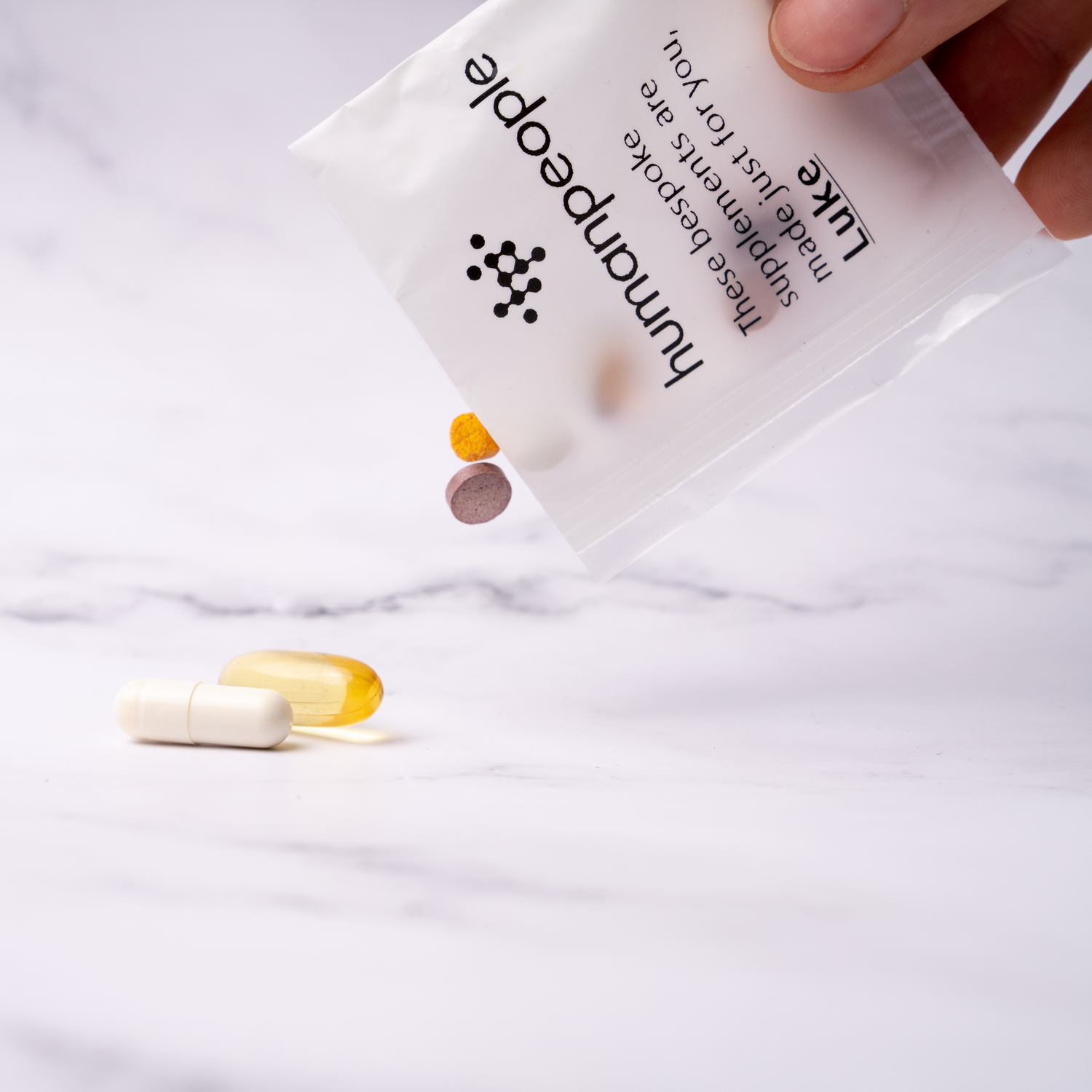The foundation. Proper nutrition can balance hormones, improve mood, and enhance the body's response to stress.
Nutrition
You have saved personalized supplements. Would you like to add them back to your cart?
£0.00 GBP
Your cart total must be £20.00 or more to proceed.

Clear calm focus
Short term
Stress and pressure are a fact of life, from the busy parent, the hardworking student, the athlete or the professional, it drives us forward.
Long term
If stress continues long term, it will ultimately diminish our health in the long and short term. Being more resilient to stress can help us manage our way out of these situations.

Humanpeople
By regulating cortisol and calming the amygdala this stack helps to ameliorate the effects of stress. Contains magnesium, rhodiola, theanine and more see full details here...
Nutrition
The foundation. Proper nutrition can balance hormones, improve mood, and enhance the body's response to stress.
Movement and exercise
Exercise releases endorphins, which act as natural mood lifters. It also helps you sleep better, reduces stress, and boosts self-esteem.
Mindfulness and life balance
Mindfulness techniques can help you become aware of your thoughts and feelings and make it easier to change your reactions to stressors.
Social connection and community
A strong social support network can be critical in times of stress. It can provide emotional support and practical help when you're dealing with challenges.

General approach or personalised approach- your choice.
Unlock personalised support. A sensible first step is to complete our health assessment.Combined with a simple home blood test checking for deficiencies in vitamins D, B12, folate, and iron. See our nutrient blood test.
Our medical team will review the results and make personalised recommendations for you.
The four pillars above are essential to dealing with stress. Understanding your genes can add further insights.
Just want some help now? You can check out our Doctor's recommended stress relievers or get recommendations following our health assessment.

1. Rhodiola is an adaptogenic herb that can help the body adapt to stress by balancing hormones, particularly cortisol, improving mental and physical performance, and enhancing mood.
2. Magnesium glycinate can cross the blood-brain barrier and work at a higher level. Magnesium is crucial for GABA function, an inhibitory neurotransmitter that produces "happy hormones" like serotonin, helping to calm the nervous system. It also improves sleep.
3. L-theanine is an amino acid that helps manage stress by promoting relaxation, enhancing the production of calming neurotransmitters like GABA, and improving cognitive function. Its ability to reduce cortisol levels and improve mood is valuable for natural stress management.
4. Ashwagandha is a versatile adaptogenic herb that offers a comprehensive approach to stress management by reducing cortisol levels, improving mood, enhancing sleep, and supporting cognitive and physical performance.
5. 5-HTP is a precursor to serotonin, a neurotransmitter crucial in regulating mood and stress response. Studies have shown that 5-HTP can reduce symptoms of anxiety, which is often linked to stress.
Our medical team led by our Chief Medical Officer Dr Geoff Mullan has put together a pack of supplements that have synergistic effects based on both clinical experience and the latest research.
If some of the contents are already in your pack our AI will sort these out and only add the new ones. That allows you to merge different specialist packs without duplication.
Check out the full details of the

Humanpeople
By regulating cortisol and calming the amygdala this stack helps to ameliorate the effects of stress. Contains magnesium, rhodiola, theanine and more see full details here...
All the latest news

The Role of Probiotics in Skin Health and Related Gut–Skin Axis. NCBI.

